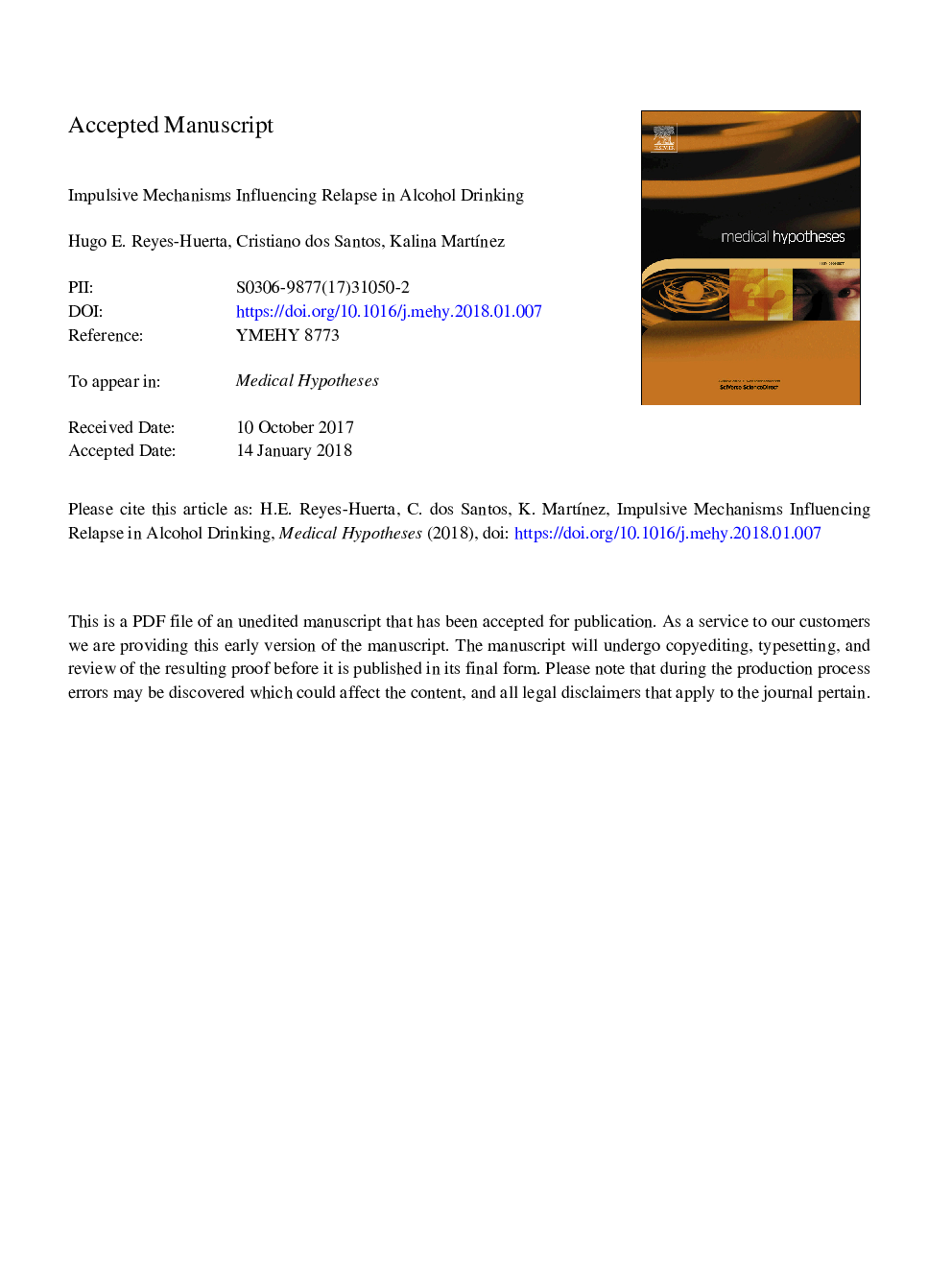| Article ID | Journal | Published Year | Pages | File Type |
|---|---|---|---|---|
| 8515959 | Medical Hypotheses | 2018 | 13 Pages |
Abstract
Impulsivity has been related to different features of addictive behaviors. Growing data, generated in separated lines of research, suggest that different processes underlying impulsivity are associated to relapse in alcohol drinking. Considering the evidence, relapse can be understood as an impulsive choice or as an impulsive action. In the first case, the return to drinking behavior is a consequence of insensitive to delayed consequence, that is, to the discounting of delayed rewards. In the second case, relapse is a consequence of failures to inhibit prepotent responses. Nevertheless, conditions that control the action of each mechanism or their interaction to influence relapse still unknown. We hypothesize that both mechanisms interact to produce relapse depending on framing effects, the moments of a drinking episode or context. The implication of the hypothesis is that relapse prevention strategies need to reduce discounting rate, but also to increase behavioral inhibition in the presence of cues related to alcohol.
Related Topics
Life Sciences
Biochemistry, Genetics and Molecular Biology
Developmental Biology
Authors
Hugo E. Reyes-Huerta, Cristiano dos Santos, Kalina MartÃnez,
